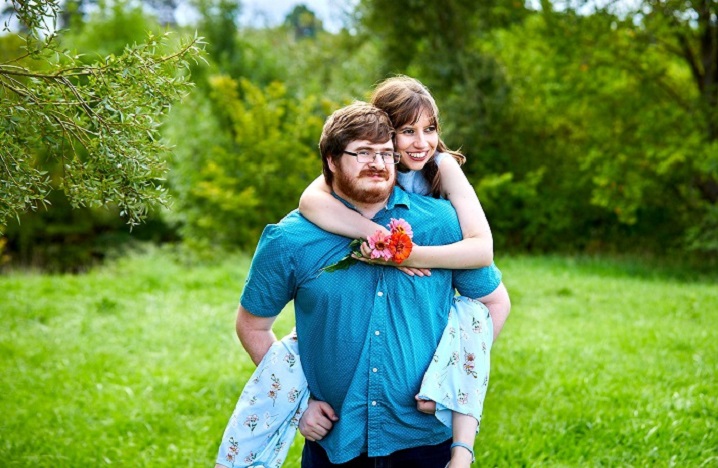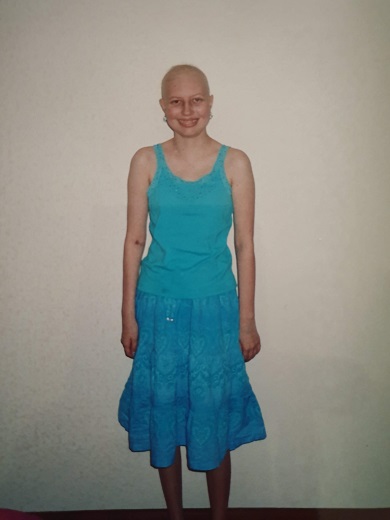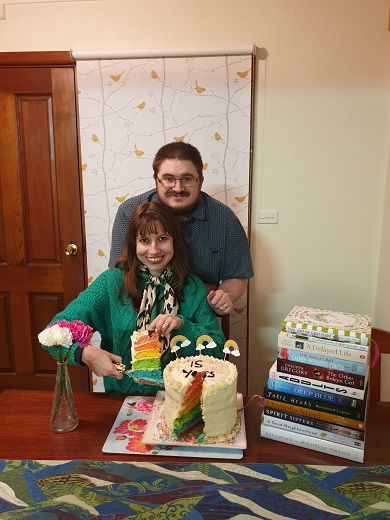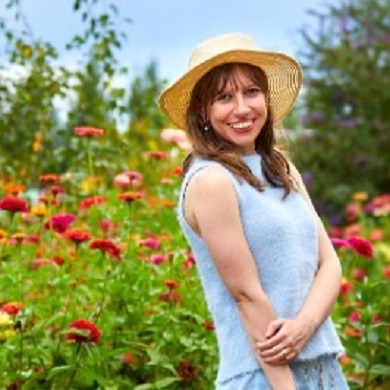The teenage blood cancer experience: Emma’s story

Nearly 16 years since her diagnosis, Emma Ingster, now 30-years-old, reflects on being diagnosed as a teenager and the challenges of navigating a health system where she often felt invisible.
Emma was diagnosed with acute lymphoblastic leukaemia (ALL) in 2005 when she was just 14- years–old.
“I’d never been to hospital or had any illnesses besides a common cold before being diagnosed,” remembers Emma. “I was in year nine and spent most of my spare time outside of school writing books and poems.”
As soon as Emma was told what she had was very serious and she could die, she entered what she refers to as “the second half of my life”.

“Nothing was ever the same after that,” she said.
“My mum was devastated, my much younger sister was too young to fully comprehend what was happening, and my dad kept focused on work to deal with my diagnosis.”
With no proper treatment facilities or protocol available to treat her as an adolescent, Emma wasn’t able to have treatment in her hometown of Canberra.
“The doctors told me if I received an adults’ treatment protocol, my overall survival rate would drop significantly,” explains Emma. “My best chance was the Sydney Children’s Hospital in Randwick.”
Emma and her mother, Esther were flown by Care Flight to Sydney where her oncologist confirmed she had a rare form of T-Cell ALL, only documented in a handful of people worldwide.
“My oncologist consulted with her peers in America,” explains Emma. “They agreed to implement a nine-month intense chemotherapy protocol followed by and an 18-month maintenance treatment as opposed to six months of chemo and three months of radiation.
“My mum and I travelled back and forth to Sydney for nearly a year for my treatment.”
She now looks back on this with disappointment and hopes that things can be improved for teenagers facing a diagnosis.
“It upsets me a lot to this day that adolescents still fall into an invisible category.”
“Knowing my own hometown could not cater for my physical treatment needs due to my age was disappointing and I would have felt more supported had better systems for teens with cancer been in place.
“I was first admitted onto an adults’ oncology ward where I was surrounded by elderly people with no one to talk to.
“I was then transported to a children’s ward covered in posters of the Bananas in Pyjamas. I was too physically sick to attend any camps; my only contact with teens was with a few others who had been diagnosed around the same time as me
“Things have improved somewhat, but there is still the invisibility of being between child and adult that means adolescents are not always supported to their exact needs.”
Emma missed a year and a half of school due to her treatment and found it difficult to return to her pre-cancer life.

“Facing your own mortality much sooner than you expected challenges how you live your life from that point onwards,” said Emma.
“Many of the things I had once considered important to me weren’t anymore and the things that were now important to me were not necessarily on the minds of other people my age, so I often felt a lot older than my peers.
“Gradually, I learned to accept I would be different, but that I could still enjoy being young and having fun.
“I also struggled for many years to figure out my place in the world-the pressure of surviving made me want to live perfectly.”
On the 4th May 2020, Emma celebrated fifteen years remission from leukaemia with her family including husband, Joe who is one of her former classmates.
“Support from people I love, even support from strangers, has impacted my life for the better and it continues to help in my healing,” said Emma.
“I am very lucky that I have no physical side effects from my treatment to date.
“I was even told by my GP that my fertility is normal, which was a nice surprise. Unfortunately, leukaemia has meant I suffer with anxiety on a regular basis, but I am learning self-care to combat that.”
Emma offers this advice to others going through a diagnosis:
“You are in a new world so always ask questions about anything you don’t understand and don’t be afraid to tell the doctors/social workers/counsellors what you need or what you would like to see improved for yourself and others,” she said.

“Some family members and friends may greatly disappoint you; it will hurt, but you are better for knowing who those people are and investing your love and energy into the others who are there for you.
“Think about what you want to do in the future, but not so much that you forget to exist in the present.”
“As you heal, never forget to take pleasure in the small things like a good cup of coffee, beautiful nature, a hug from someone who loves you.
“The bigger things will come later. Don’t expect perfection but look forward to good things happening again because they will.”
Emma is a keen writer in her spare time and is about to finish her Master of Teaching.
“My aspiration is to continue to write and publish my novels and my memoir someday,” said Emma.
“As for the rest, I want to continue working in education and also fundraise and volunteer when I can. If I become a mum someday, I’ll aspire to teach my children that they are stronger than they could ever possibly know.
“Oh, and I hope to live to be a sassy one-hundred-year-old woman!”